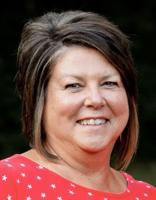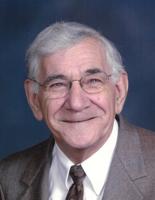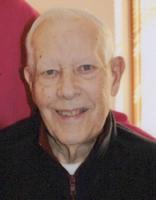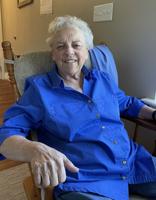GOSHEN — There was an undeniable spirit hanging in the air inside Goshen College’s Sauder Concert Hall Saturday night as the six-o’clock hour approached. Garrison Keillor, the prodigious host of the internationally-syndicated radio variety show, "A Prairie Home Companion," had just finished tuning up his audience with an impromptu and impeccable singing of "My Country Tis of Thee."
Music, it was well understood in the audience, would be the foundation of the upcoming live broadcast, and everybody would have a voice in the show.
"We have come to the right place, found the right college to do the show we want to do," Keillor said after the song and just before the show went live over the airwaves. "We have come across an extraordinary group of people."
And so it began, Goshen’s and Goshen College’s day in the sun with Keillor, a savvy and folksy orator, taking our hands and leading the way down that nostalgic dusty road toward Lake Wobegon.
Fans of the program know where that is, but Saturday’s journey there was different as it sliced through the heart of The Maple City with local musicians and local voices charting the course.
Perhaps Keillor’s most effective compass for Saturday’s show was the students of Goshen College’s Chamber Choir, under the direction of Scott Hochstetler. Keillor utilized the choir consistently throughout the two-hour program. The students belted out the school hymn in remarkable harmony. They charmed the audience with a tongue-in-cheek song written by Keillor titled, "Adolescence, Thank Goodness It’s Over." They even served as the well-tuned conscience of Keillor’s "Guy Noir Private Eye," during that popular skit.
The audience lived up to its obligation as well, standing and singing at Keillor’s prompting like they were in church on Sunday morning. First came "Praise God From Whom All Blessings Flow," and then "Joyful, Joyful, We Adore Thee."
After the mid-show break, Keillor ordered up a few notes on the piano and the audience eased into "How Great Thou Art."
"How sweet it is," Keillor said, "to be in the same room with people who know the words to the same songs."
It was easy to forget that the show was being broadcast live to an estimated 4 million people on more than 500 public radio stations worldwide. The show had a calm, casual flow, but remained highly-coordinated, hitting every mark along the way.
Keillor explained to his worldwide audience the history of the Mennonite faith that is anchored to a Christ-like spirit of peace and how their people turned to music and song during long stretches of persecution. It was the way he explained it, however, that resonated with the audience and built the trust he would lean on later. He casually paced around the stage like a college professor, lecturing from memory, not script. He knew his material. He had done his homework. Most importantly, you believed he understood everything around him.
He made jokes about Mennonites; at times seemingly straddling the boundary of good-natured wit, but never crossing the line. "You’re like the Amish," he sang to his audience at one point, "but with motor vehicles."
He also doted on his hosts, reiterating the power of their voices and marveling at the charm of their city.
"You’re all seasons," he continued in song, "and all nations."
Amen to that.
The show also featured Keillor’s cast of skit actors — Tim Russell and Sue Scott — along with sound effects guru Fred Newman, whose sounds are even more impressive when you can see him making them.
Singer-songwriters Lily and Madeleine Jurkiewicz from Indianapolis, neither yet 20, wowed the audience with their remarkable voices as Lily strummed her guitar and Madeleine played the grand piano on stage. They look like they should be in a math class, but sing like they are somebody’s guardian angels.
"What song are you going to play," Keillor asked.
"Paradise," Madeleine responded.
"What a perfect song," Keillor said softly, "for this time and place."
An obvious high point for the audience was when Middlebury’s Ethan Setiawan, 17, played the mandolin with a controlled fury that was remarkable to see and hear. When the National Mandolin Champion finished his final pick, the crowd burst into applause as if they couldn’t have waited one more second.
Keillor then casually transitioned to the news from Lake Wobegon, a soothing and meandering monologue that paints the picture of small-town America, where, as Keillor always concludes, "all the women are strong, all the men are good looking and all the children are above average."
He wove a story about a high school after prom party that harbored prospects of skinny dipping in the lake. "Good judgment," Keillor explained, "is based on experience that is usually the result of bad judgment." And the boys that night, he explained, were hoping for some bad judgment.
But through all the music, stories and skits, what Saturday night’s show really seemed to be about was youth — The sound of youth, the promise of youth and, yes, the memory of youth.
Surrounded by an extraordinary choir of college students and remarkable teenage musicians, Keillor masterfully used his long-running, old-time radio show to make us feel like kids again.
Michael Wanbaugh is managing editor of The Goshen News. Follow him on Twitter @MWanbaugh













